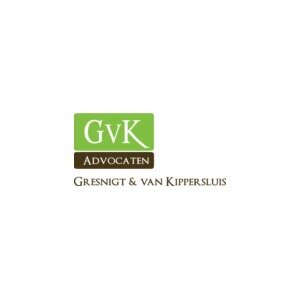Best Antitrust Litigation Lawyers in Utrecht
Share your needs with us, get contacted by law firms.
Free. Takes 2 min.
List of the best lawyers in Utrecht, Netherlands
About Antitrust Litigation Law in Utrecht, Netherlands
Antitrust litigation refers to the legal processes and court cases that arise when businesses, individuals, or entities are suspected of violating competition laws. In Utrecht, as in the rest of the Netherlands, antitrust law ensures that businesses compete fairly and consumers are protected from unfair market practices. This includes addressing actions like price fixing, abuse of market dominance, cartel activities, and mergers that restrict competition. Both national Dutch laws and European Union rules apply to antitrust cases, making this a complex and highly regulated area of law.
Why You May Need a Lawyer
Antitrust litigation is typically complex and involves significant legal expertise. You may need a lawyer if:
- You are accused of engaging in anti-competitive behavior, such as price fixing, bid rigging, or abusing market dominance.
- You believe a competitor is acting unfairly or violating competition laws, harming your business.
- Your business is involved in a merger or acquisition that could raise competition concerns.
- You have been approached by the Dutch Competition Authority (Autoriteit Consument & Markt - ACM) or the European Commission for investigation or questioning.
- Your company has received a fine or sanction due to a suspected violation of antitrust laws.
- You want to ensure your contracts, licensing, or distribution agreements comply with competition laws.
Local Laws Overview
In Utrecht, antitrust litigation is guided by Dutch competition law, primarily based on the Mededingingswet (Dutch Competition Act). This law closely aligns with European Union competition regulations, notably Articles 101 and 102 of the Treaty on the Functioning of the European Union (TFEU). Cases may be handled by the national competition authority (ACM) or, for cross-border matters, the European Commission.
Key provisions include:
- Prohibition of agreements that restrict competition, such as cartels or collusions.
- Ban on the abuse of dominant positions by companies, for example, by predatory pricing or exclusive supply agreements.
- Oversight of mergers and acquisitions to prevent market dominance.
- Strict penalties, including large fines, for violations of competition law.
- Rights for victims of anti-competitive practices to claim damages in civil court.
Utrecht courts handle antitrust cases according to these local and European standards, ensuring that they are resolved with both national and international perspectives.
Frequently Asked Questions
What is antitrust litigation?
Antitrust litigation involves legal actions taken to resolve disputes or violations related to competition law, such as unfair agreements between businesses, abuse of market power, or other practices that restrict healthy competition.
Which authority investigates and enforces antitrust laws in Utrecht?
The Dutch Competition Authority (Autoriteit Consument & Markt - ACM) is the primary body that investigates and enforces competition law in the Netherlands, including Utrecht. For cases with an international aspect, the European Commission may also be involved.
What are common examples of antitrust violations?
Common violations include price fixing, bid rigging, dividing markets, abusing a dominant position, and mergers that lessen competition.
Can individuals or small businesses be subject to antitrust investigations?
Yes. While larger companies are often investigated, individuals and small businesses can also be scrutinized if they are suspected of violating competition laws.
How are fines determined in antitrust cases?
Fines are based on the severity and duration of the violation, the size of the company, and the impact on the market. Fines can be substantial and are intended to deter future violations.
What should I do if my company is being investigated?
Seek immediate legal advice from a lawyer experienced in antitrust law. Cooperation and transparency with authorities can be important, but expert legal support will help protect your rights and interests.
Can companies defend themselves against antitrust accusations?
Yes. Companies can present evidence, witness statements, and legal arguments in their defense either before the competition authority or in court.
Is it possible to challenge an ACM decision?
Yes. Decisions by the ACM can be appealed in the administrative courts in the Netherlands, giving companies a chance to contest findings or penalties.
Are there private rights of action for damages in the Netherlands?
Yes. Businesses or individuals harmed by anti-competitive practices can file lawsuits in Dutch civil courts seeking compensation for damages suffered as a result of those practices.
How can I ensure my business is compliant with antitrust laws?
Implement regular compliance training, review your contracts and business practices with a knowledgeable lawyer, and stay informed on changes to national and EU competition laws.
Additional Resources
- Dutch Competition Authority (Autoriteit Consument & Markt - ACM)
- Netherlands Bar Association (Nederlandse Orde van Advocaten) for finding qualified lawyers
- European Commission Directorate-General for Competition
- Local chambers of commerce offering guidance on regulatory compliance
- Legal aid foundations in Utrecht for those who may qualify for assistance
Next Steps
If you need legal assistance with antitrust litigation in Utrecht:
- Gather any documents and information related to your legal issue, such as contracts, correspondence with authorities, and business records.
- Contact a lawyer or law firm in Utrecht with expertise in competition and antitrust law. Ask about their experience, typical approach, and fees.
- If you have been contacted by the ACM or another authority, do not attempt to handle the matter alone - seek legal advice immediately.
- Consider contacting relevant organizations or professional bodies for additional support, especially if you are a small business or individual needing additional guidance.
Taking these steps promptly can help you navigate the complexities of antitrust litigation, protect your legal rights, and work towards a favorable resolution.
Lawzana helps you find the best lawyers and law firms in Utrecht through a curated and pre-screened list of qualified legal professionals. Our platform offers rankings and detailed profiles of attorneys and law firms, allowing you to compare based on practice areas, including Antitrust Litigation, experience, and client feedback.
Each profile includes a description of the firm's areas of practice, client reviews, team members and partners, year of establishment, spoken languages, office locations, contact information, social media presence, and any published articles or resources. Most firms on our platform speak English and are experienced in both local and international legal matters.
Get a quote from top-rated law firms in Utrecht, Netherlands — quickly, securely, and without unnecessary hassle.
Disclaimer:
The information provided on this page is for general informational purposes only and does not constitute legal advice. While we strive to ensure the accuracy and relevance of the content, legal information may change over time, and interpretations of the law can vary. You should always consult with a qualified legal professional for advice specific to your situation.
We disclaim all liability for actions taken or not taken based on the content of this page. If you believe any information is incorrect or outdated, please contact us, and we will review and update it where appropriate.









